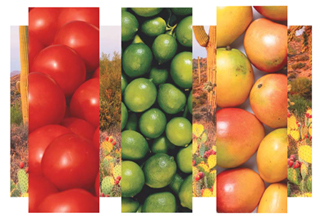“The fact that the port will be able to handle more business in the upcoming season is very positive for us,” said Chris Ciruli, chief operating officer of Ciruli Brothers, LLC. “We’re not worried about delays due to border infrastructure, but we’ve certainly had issues and some spoilage due to testing and FDA (U.S. Food and Drug Administration) lab delays, especially during a long weekend or a government holiday.”
Alberto Maldonado, general manager at Apache Produce Imports, LLC had this to say: “If something goes wrong at a checkpoint, it can delay everything. Right now, it takes at least 24 hours to get a truck through from Sinaloa, when it used to take 16 to 18 hours.” But, he says, “we can’t judge efficiency until the port is completely finished.”
“The big thing we’re doing is working with the FDA on the new Food Safety Modernization Act,” says the FPAA’s Moore. “At the port, that means trying to be as efficient as possible. To be efficient with 1,500 trucks a day, we want to help the FDA identify and isolate risk better, and also see which companies are taking the right steps and perhaps don’t need as much scrutiny. When there is an incident, we want to work with the FDA to localize it quickly—identify the cause, commodity, grower, and region—so it doesn’t necessarily have to impact the whole industry.”
To get trucks through the inspections process more quickly, there are options—such as trying to make inspections go faster, or using expedited clearance or passes for prescreened companies—both continue to be discussed. The latter has been tested in California, but there are no definitive plans for a full rollout.
“There are a lot of possibilities,” says Emmerman. As for the California preclearance pilot program, she says, “if it works well, we could look into it as a way to facilitate the flow of traffic in a safe and secure manner.”
Moore added: “The FDA is working on a rule right now that would accredit third-party auditors to look at companies’ Primus and other ratings and grant them different certifications, which could help with inspection times.”
Regulatory Impact on Transporting and Freight
The good news for truckers in the Nogales region is that more trucks will get across the border quicker. The more challenging news is that once repacked and stored at Nogales distributors, changes in regulations stateside threaten to slow delivery times of Nogales-distributed produce to U.S. locations.
California’s tighter emissions and more stringent hours of service rules from the Federal Motor Carrier Safety Administration continue to make transporting perishables from Nogales to anywhere in the United States and beyond a much more complicated logistical puzzle.



